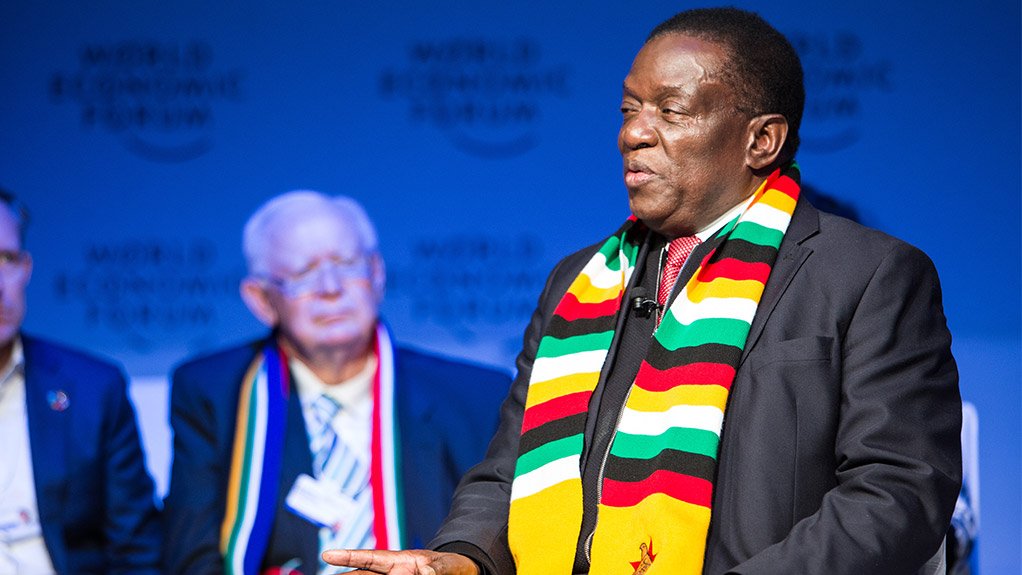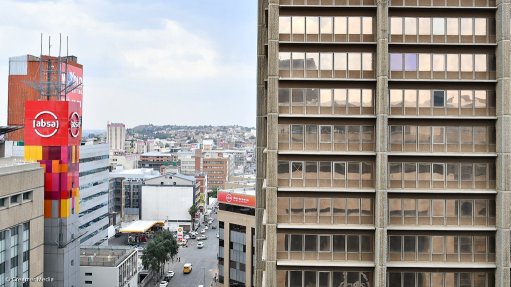Zimbabwe has skills, natural resources to support increasing investment


EMMERSON MNANGAGWA The new Zimbabwe government is taking steps to attract investment in the country
Zimbabwe has adequate skilled and unskilled labour to support increasing investment and the expansion of mining operations, claims mining, exploration and development company Caledonia Mining.
Caledonia owns the Blanket gold mine, in Zimbabwe, one of the few operating gold mines in the country. The company is seeking to expand its operations and increase production growth by 45% to about 80 000 oz/y by 2021. Caledonia is also pursuing exploration at several satellite projects around the Blanket mine.
“Zimbabwe has always prided itself on a very educated population; there are good skills and training centres, the Zimbabwe School of Mines and good universities,” Caledonia CEO Steve Curtis points out.
He, however, notes that, when the international investors provide significant investment, it will be incumbent on them to attract further skilled and qualified labour from the Zimbabwean diaspora.
There are skilled, well- qualified Zimbabweans who left the country to work in South Africa, Canada or Australia in the past 20 years owing to limited opportunities as a result of minimal investment in the country, Curtis maintains. These Zimbabweans have honed their skills and, if they are confident, there are increasing opportunities which will be “extremely beneficial” to the mining industry, he reiterates.
Attracting Investment
After Emmerson Mnangagwa took over leadership of Zimbabwe in November 2017, the new government is taking steps to attract investment in the country, such as removing the indigenisation laws and not forcing companies to list on the Zimbabwean Stock Exchange. “These changes are important for Caledonia, as well as the whole mining industry, because investors will be less worried about ending up with only 49% of the profits from the money they invest; rather, they can now own 100% of a business, apart from diamond and platinum mines,” Curtis avers.
In addition, the Zimbabwean Reserve Bank has announced an export credit incentive to all exporters, specifically for the gold mining sector, where exporters receive a 10% credit based on the revenue they create. Therefore, gold exporters get paid the London gold spot price, and receive an extra 10% credit for generating export proceeds. The credit has been raised from the previous 2.5%, Curtis points out.
“This is significant from our perspective,” he states, adding that it is a means through which Caledonia can raise funds for further exploration exercises and, for some industries, it could mean the difference between profitable and nonprofitable operations. This credit will enable operations, especially smaller operations, to raise liquidity and spend the credit on much-needed investments in projects, he avers.
Despite the positives, investors and operators should not be naive when it comes to the challenges that face Zimbabwe. “A major concern is the shortage of foreign currency in the country,” says Curtis. The Reserve Bank remains in control of foreign currency, and the mining industry does not have control over the income streams in terms of the free flow of foreign currency, he adds.
This affects investment decisions and, while it has not been a stumbling block for Caledonia, it makes operations significantly more difficult. “We have to understand where we [operators and industry] are, and Zimbabwe can aspire to the free flow of foreign currency,” Curtis enthuses.
Zimbabwe used to be the third-biggest producer of gold on the African continent and, despite the lack of exploration and investment over the past 20 years, the mineral resources are still available, highlights Curtis.
Further, these mineral resources are not limited to gold. The country has proven resources of platinum, diamonds, chrome, lithium and nickel that can be further explored. “With the ‘doors’ to Zimbabwe opening up again, there is significant interest in reigniting mining activities,” Curtis claims.
“People know what Zimbabwe is capable of – they know some of the resources, so the opportunities are immense,” he concludes.
Article Enquiry
Email Article
Save Article
Feedback
To advertise email advertising@creamermedia.co.za or click here
Press Office
Announcements
What's On
Subscribe to improve your user experience...
Option 1 (equivalent of R125 a month):
Receive a weekly copy of Creamer Media's Engineering News & Mining Weekly magazine
(print copy for those in South Africa and e-magazine for those outside of South Africa)
Receive daily email newsletters
Access to full search results
Access archive of magazine back copies
Access to Projects in Progress
Access to ONE Research Report of your choice in PDF format
Option 2 (equivalent of R375 a month):
All benefits from Option 1
PLUS
Access to Creamer Media's Research Channel Africa for ALL Research Reports, in PDF format, on various industrial and mining sectors
including Electricity; Water; Energy Transition; Hydrogen; Roads, Rail and Ports; Coal; Gold; Platinum; Battery Metals; etc.
Already a subscriber?
Forgotten your password?
Receive weekly copy of Creamer Media's Engineering News & Mining Weekly magazine (print copy for those in South Africa and e-magazine for those outside of South Africa)
➕
Recieve daily email newsletters
➕
Access to full search results
➕
Access archive of magazine back copies
➕
Access to Projects in Progress
➕
Access to ONE Research Report of your choice in PDF format
RESEARCH CHANNEL AFRICA
R4500 (equivalent of R375 a month)
SUBSCRIBEAll benefits from Option 1
➕
Access to Creamer Media's Research Channel Africa for ALL Research Reports on various industrial and mining sectors, in PDF format, including on:
Electricity
➕
Water
➕
Energy Transition
➕
Hydrogen
➕
Roads, Rail and Ports
➕
Coal
➕
Gold
➕
Platinum
➕
Battery Metals
➕
etc.
Receive all benefits from Option 1 or Option 2 delivered to numerous people at your company
➕
Multiple User names and Passwords for simultaneous log-ins
➕
Intranet integration access to all in your organisation



















